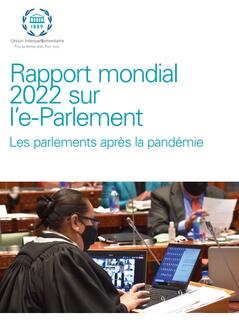- ImpactWe help parliaments to become greener and to implement the Paris agreement.We support democracy by strengthening parliamentsWe work to increase women’s representation in parliament and empower women MPs.We defend the human rights of parliamentarians and help them uphold the rights of all.We help parliaments fight terrorism, cyber warfare and the proliferation of weapons of mass destruction.We encourage youth participation in parliaments and empower young MPs.We support parliaments in implementing the SDGs with a particular focus on health and climate change.
- ParliamentsNearly every country in the world has some form of parliament. Parliamentary systems fall into two categories: bicameral and unicameral. Out of 190 national parliaments in the world, 78 are bicameral (156 chambers) and 112 are unicameral, making a total of 268 chambers of parliament with some 44,000 members of parliament. IPU membership is made up of 180 national parliaments
Find a national parliament
We help strengthen parliaments to make them more representative and effective. - EventsMeetingIndonesiaThe World Water Forum is the world’s largest event on water, organized every three years.-
- Knowledge
Discover the IPU's resources
Our library of essential resources for parliamentsGlobal data for and about national parliamentsLatest data and reports about women in parliamentResolutions, declarations and outcomes adopted by IPU MembersRecent innovations in the way parliaments workThe latest climate change legislation from the London School of Economics' database
World e-Parliament Report 2022: Key findings and recommendations
The World e-Parliament Report 2022, the seventh in the series, focuses on how parliaments have been changed by the COVID-19 pandemic, revealing how innovation and digital technologies are offering greater potential for improvements in parliamentary functioning.
The report identifies how parliaments are continuing to modernize and build resilience, highlighting the strategic gains already realized. This reinforces the earlier finding, in the 2020 report, that the pandemic was a catalyst for new and transformational digital practices.
As parliaments return to more familiar, less crisis-driven ways of operating, many remain changed by their experiences. The new report shows how digital tools, innovative thinking and strong leadership are now vital for parliaments that want to become more responsive to the conditions around them. Those parliaments that chose to innovate have dramatically changed how they function, embracing new technologies and new ways of working.
The pandemic has left parliaments more resilient and more innovative, with greater use of the cloud and Software as a Service (SaaS). This leads to changing patterns of ICT management, procurement and support, and a stronger focus on cybersecurity and training.
Research by the CIP found that hybrid sittings (particularly for committees but also in plenary) continue to offer significant benefits in terms of accessibility and flexibility. Hybrid tools have the potential to support better work-life balance for members and staff, and to encourage greater diversity in democratic participation. And there is an opportunity to build on members’ experience of the pandemic, as they report significantly higher levels of trust in digital tools than before.
The report urges parliaments to respond to recent events at the highest level, including by carrying out a formal inquiry to learn lessons from the pandemic and to prepare the institution for the future. It further recommends undertaking a digital capability assessment, including a review of business continuity planning. Finally, the report proposes that parliaments delegate senior staff to participate in parliamentary knowledge exchanges, in order to learn from and share with their peers.
Read the World e-Parliament Report 2022 here.
For more information, contact the Centre for Innovation in Parliament at [email protected].





